Cardi B and Offset share three children together — Kulture, 6, Wave, 3 and Blossom, born in 2024.
If you’re looking for a rare name for your daughter, baby girl names with V are a great place to start.
According to WordsRated, a website that provides tools to help people participate in word games, only 2.14% of all baby girls born in 2022 were given a name that starts with “v.”
Compared to other letters, that made V girl names the 10th-rarest among baby girl names in 2022 — behind only the letters O, Z, T, F, W, Y, X, Q and U.
And not much has changed in the few years since.
In fact, only four girl names that start with V were included in the Social Security Administration’s (SSA) top-100 girl names of 2023, including Violet (16th), Victoria (45th), Valentina (49th) and Vivian (87th).
Of those baby girl names with V, only Victoria ranks in the top-100 girl names over the last 100 years — with Virginia being the only other “v” name on that list.
With that said, there’s an entire world of baby girl names with V that aren’t commonly used today — or ever, for that matter — but you could help change that!
Here are a few ideas that could use some love in the modern world.
Victoria

Origin: Roman; Latin
Meaning: Victory
Victoria, pronounced vik-TOR-ee-uh, is derived from the Latin word victoria, meaning “victory.” In Roman mythology, Victoria was the personified goddess of victory and equivalent to the Greek goddess Nike.
Virginia

Origin: Latin
Meaning: Pure; Maiden
Virginia, pronounced ver-JIN-yuh, comes from the Roman family names Verginius or Virginius, which are derived from the Latin word virgo, meaning "pure" or "maiden." It’s also the name of a state in the U.S..
Violet

Origin: Latin
Meaning: Blue-purple color; Purple flower
Violet, pronounced VY-uh-lit, comes from the English word violet and Latin word viola, referring to the purple-blue color or flower known for their charming, delicate petals that come in various shades of purple, blue, yellow, and white.
Valentina

Origin: Roman; Latin
Meaning: Strong; Healthy; Brave
Valentina, pronounced val-en-TEE-nuh, is the feminine form of Valentine, which comes from the Roman cognomen Valentinus and is derived from the Latin word valens, meaning "strong" or "healthy."
Vivian
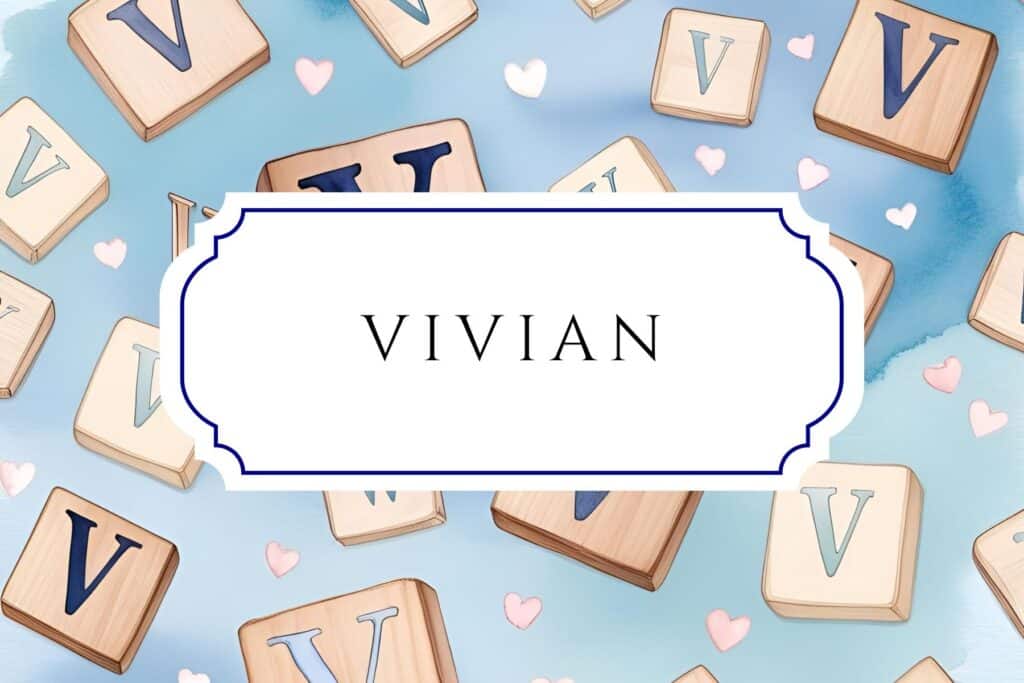
Origin: Latin
Meaning: Full of Life
Vivian, pronounced VIV-ee-uhn, comes from the Latin name Vivianus and Latin word vivus, meaning "alive" or "living." It was originally used for both genders, but is now predominantly used for baby girls.
Valerie

Origin: Roman; Latin
Meaning: Strong; Healthy; Brave
Valerie, pronounced VAL-uh-ree, derives from the Latin name Valeria, which is the feminine form of the Roman family name Valerius and comes from the Latin word valere, meaning "to be strong” or “healthy.”
Valeria

Origin: Roman; Latin
Meaning: Strong; Healthy; Brave
Valeria, pronounced vuh-LEER-ee-uh, is a direct Latin feminine form of the Roman family name Valerius, which is derived from the Latin word valere, meaning "to be strong" or "to be healthy."
Vera

Origin: Slavic; Latin; Albanian
Meaning: Faithful; Truthful; Summer
Vera, pronounced VEE-ruh or VAIR-uh, has various meanings depending on its origin, such as the Slavic word věra, meaning “faith,” Latin word verus, meaning “true,” or Albanian word verë, meaning “summer.”
Vivienne

Origin: French; Latin
Meaning: Full of Life
Vivienne, pronounced viv-ee-EN, is the French feminine form of the Latin name Vivianus, which is derived from the Latin word vivus, meaning “to be alive” or “living.” It’s a common variation of the name Vivian.
Vanessa

Origin: Literary; Anglo-Irish
Meaning: Butterfly
Vanessa, pronounced vuh-NESS-uh, was invented by author Jonathan Swift as an anagram from the first syllable of Esther Vanhomrigh's first and last names. It was later adopted as a genus of butterfly.
Viviana
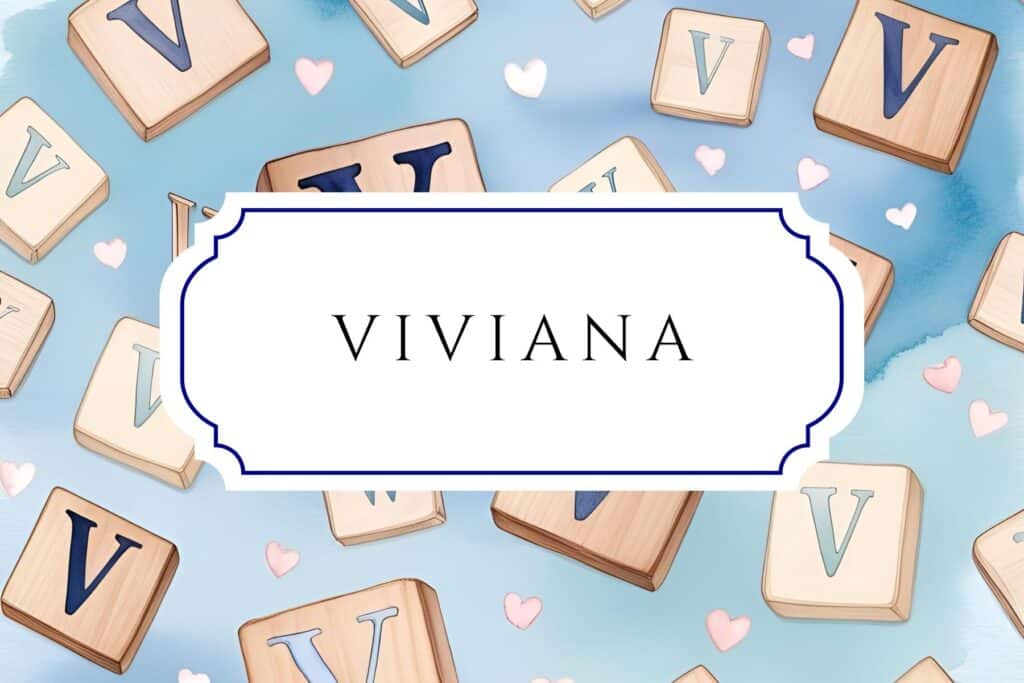
Origin: Latin
Meaning: Full of Life
Viviana, pronounced viv-ee-AH-nah, is a feminine form of the Latin name Vivianus, which is derived from the Latin word vivus, meaning “to be alive” or “living.” It’s yet another feminine variant of the name Vivian.
Veronica

Origin: Latin; Greek
Meaning: True Image; Bearer of Victory
Veronica, pronounced vuh-RON-i-kuh, comes from the Latin phrase vera icon, meaning "true image," and is associated with Saint Veronica, who wiped Jesus's face with her veil. It may also be derived from the Greek name Berenice, meaning "bearer of victory."
Violeta
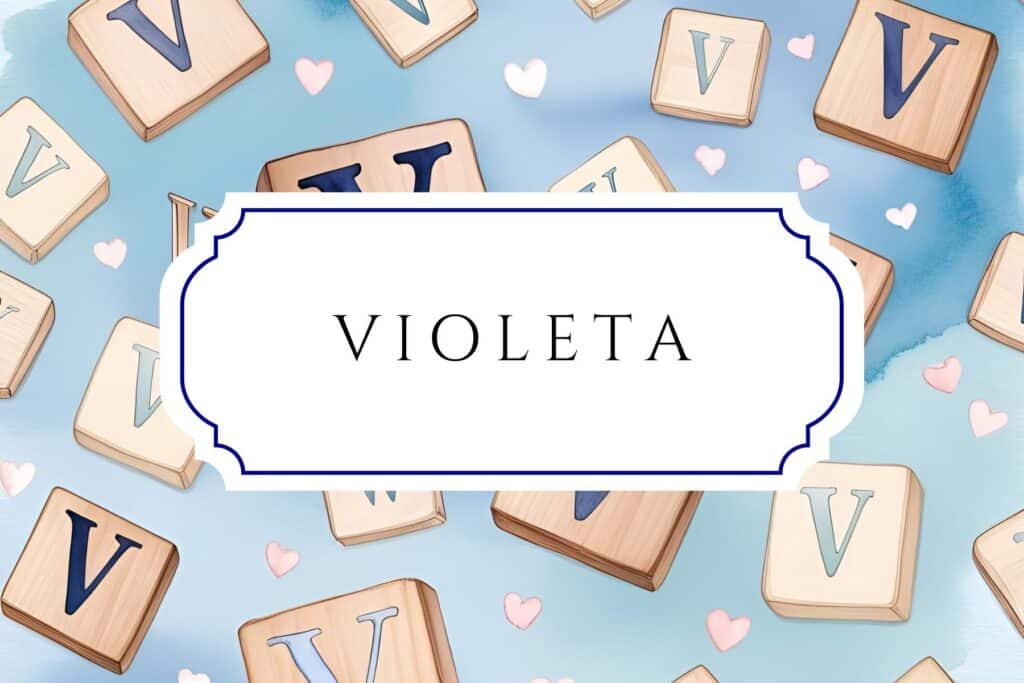
Origin: Latin; Spanish
Meaning: Purple flower; Blue-purple color
Violeta, pronounced vee-oh-LET-ah, is the Spanish and Eastern European variation of Violet, which is derived from the Latin word viola, referring to the purple-blue color or flower known for its purple petals.
Vienna

Origin: Latin; Celtic; Austrian
Meaning: Forest stream; Austrian city
Vienna, pronounced vee-EN-uh, takes its name from the capital city of Austria, which itself comes from either the Celtic word vedunia, meaning "forest stream," or the Roman place name Vindobona.
Veda

Origin: Sanskrit
Meaning: Knowledge; Wisdom
Veda, pronounced VAY-duh or VEE-duh, is derived from the Sanskrit word veda, meaning “knowledge” or “wisdom.” The four Vedas are a collection of ancient Sanskrit texts that form the foundation of Hinduism and Vedic religion.
Valery

Origin: Latin
Meaning: Strong; Brave
Valery, pronounced VAL-uh-ree or vuh-LAIR-ee, is an alternate way of spelling the name Valerie, which is ultimately derived from the Latin word valere, meaning "to be strong." Some parents also prefer Vallerie.
Vada

Origin: Sanskrit
Meaning: Knowledge; Wisdom; Snow-Capped
Vada, pronounced VAY-duh, is likely a variant of the Sanskrit name Veda, derived from the Sanskrit word veda, meaning “knowledge” or “wisdom.” It can also be a shortened form of the name Nevada, meaning “snow-capped” in Spanish. It was popularized by Anna Chlumsky’s character in the 1991 film “My Girl.”
Violette

Origin: French; Latin
Meaning: Blue-purple color; Purple flower
Violette, pronounced vee-oh-LET, is the French variation of Violet, derived from the Latin viola and Old French violette. It can refer to the blue-purple color or the viola (violet) flower, known for its purple petals.
Valencia

Origin: Latin; Spanish
Meaning: Strength; Vigor
Valencia, pronounced vuh-LEN-see-uh, is derived from the Latin word valentia, meaning "strength" or "vigor." The name shares its origin with the Spanish city and region of Valencia, located in eastern Spain.
Valkyrie

Origin: Old Norse
Meaning: Chooser of the slain
Valkyrie, pronounced val-KEER-ee or VAL-kuh-ree, comes from Old Norse mythology, referring to the female figures who chose which warriors would die in battle and be taken to Valhalla. It’s derived from the Old Norse words valr, meaning “the slain,” and kyrja, meaning “chooser.”
Venus

Origin: Roman; Latin
Meaning: Love; Desire; Beauty; Charm
Venus, pronounced VEE-nuhs, comes from the name of the Roman goddess of love and beauty, whose Greek equivalent is Aphrodite. It’s derived from the Latin word venus, meaning “love, sexual desire, beauty and charm.”
Valentine

Origin: Latin
Meaning: Strong; Healthy
Valentine, pronounced VAL-en-tyne, comes from the Latin name Valentinus and Latin word valens, meaning “to be strong” or “to be healthy.” It’s primarily a boy’s name, but can sound more feminine when pronounced VAL-en-teen.
Vivica

Origin: Latin; Dutch
Meaning: Alive; Living; War; Battle
Vivica, pronounced VIV-i-kuh, is likely a diminutive form of Vivian, which comes from the Latin word vivus, meaning “to be alive” or “living.” It can also be a distant variant of the Dutch name Wiebke, meaning “war” or “battle.”
Verity

Origin: Latin
Meaning: Truth
Verity, pronounced VEHR-i-tee, comes directly from the Latin word veritas meaning "truth." It gained modest use among English speakers after the Protestant Reformation, when virtue names became popular.
Vava

Origin: Russian; Greek
Meaning: Foreign; Strange
Vava, pronounced VAH-vah or VAY-vuh, is believed to be a shortened form or nickname of Varvara, which is the Russian form of the name Barbara, derived from the Greek word barbaros, meaning “foreign.”
Valley

Origin: English; Latin
Meaning: From the valley
Valley, pronounced VAL-ee, is derived from the Old English word valei and Latin word vallis, referring to a “valley” or a “relatively low and somewhat level land between or surrounded by higher elevations.” It can also be spelled Vallie, Vallee or Vally to separate it from the nature-inspired word.
Varena
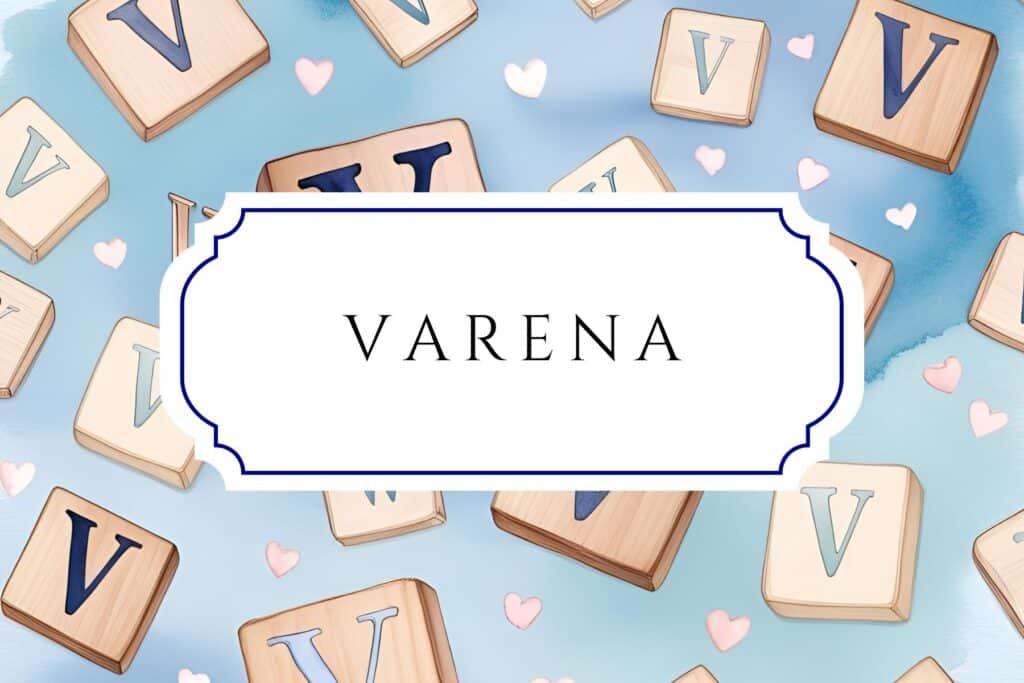
Origin: Latin
Meaning: Diverse; Truth; Respect
Varena, pronounced vuh-REE-nuh, is a variant of the name Verena and is likely derived from Latin words that begin with a similar root, such as varius, meaning “diverse,” verus, meaning “truth,” and veritus, meaning “respect.”
Victory

Origin: Latin
Meaning: Victor; Triumph; Conquerer
Victory, pronounced VIK-tuh-ree, comes directly from the Latin word victoria meaning "conquest" or "triumph." Unlike Victoria, its direct use as a given name is more modern and word-based.
Vanya

Origin: Slavic; Hebrew
Meaning: God is gracious
Vanya, pronounced VAHN-yah, is a Slavic diminutive of Ivan (the Slavic form of John), which is ultimately derived from the Hebrew name Yochanan and is composed of the Hebrew elements yo, meaning “God,” and hanan, meaning “to be gracious.”
Vega

Origin: Arabic; Spanish
Meaning: Swooping eagle; Meadow; Fertile plain
Vega, pronounced VAY-guh, has dual origins. In Arabic astronomy, it's named after the brightest star in the northern constellation Lyra, meaning "swooping eagle." In Spanish, it’s derived from the word vega, meaning "meadow" or "fertile plain."
Valoris

Origin: Latin
Meaning: Valor; Strength
Valoris, pronounced vuh-LOR-is, is derived from the Latin words valor and valorem, meaning "strength" or "courage." It’s commonly used as a company name, but some parents use it as a feminine form of Valor.
Vandelia

Origin: Germanic
Meaning: Wanderer; Vandal
Vandelia, pronounced van-duh-LEE-uh, likely derives from the Germanic tribal name "Vandal," possibly meaning "wanderer” by way of the Proto-Germanic word wandljaz. It can also be pronounced van-DELL-ee-uh.
Vanna

Origin: Italian; Hebrew
Meaning: God is gracious
Vanna, pronounced VAN-uh, can be a shortened form of Giovanna (Italian for "Jane") or Savannah, ultimately deriving from the Hebrew Yochanan meaning "God is gracious." It was popularized by Vanna White, the longtime co-host of “Wheel of Fortune.”
Vicky

Origin: Latin
Meaning: Victor; Triumph; Conquerer
Vicky, pronounced VIK-ee, is a diminutive of Victoria, which is derived from the Latin word victoria, meaning "victory." It’s commonly used as a nickname, but can also be used on its own or spelled like Viki to make it more unique.
Venice

Origin: Italian; Latin
Meaning: From Venice; Veneti tribe; City in Italy
Venice, pronounced VEN-is, takes its name from the famous Italian city (Venezia in Italian), which itself was named after the ancient Veneti people of the region. As a given name, it evokes images of romantic canals, Renaissance art, and timeless beauty.
Vesta

Origin: Roman; Latin
Meaning: Hearth; Home; Goddess
Vesta, pronounced VES-tuh, is named after the Roman goddess of the hearth, home, and family — with Hestia being her Greek equivalent. The name carries a warm connotation due to the sacred fire of Vesta, an eternal flame in Vesta’s home.
Vivia

Origin: Latin
Meaning: Full of Life
Vivia, pronounced VIV-ee-uh, is the feminine variant of the name Vivius, which comes from the Latin word vivus meaning "alive" or "living,” and Latin word vivere, meaning “to live” or “to be alive.” It can also be a variant of Olivia due to its similar sound.
Vespera
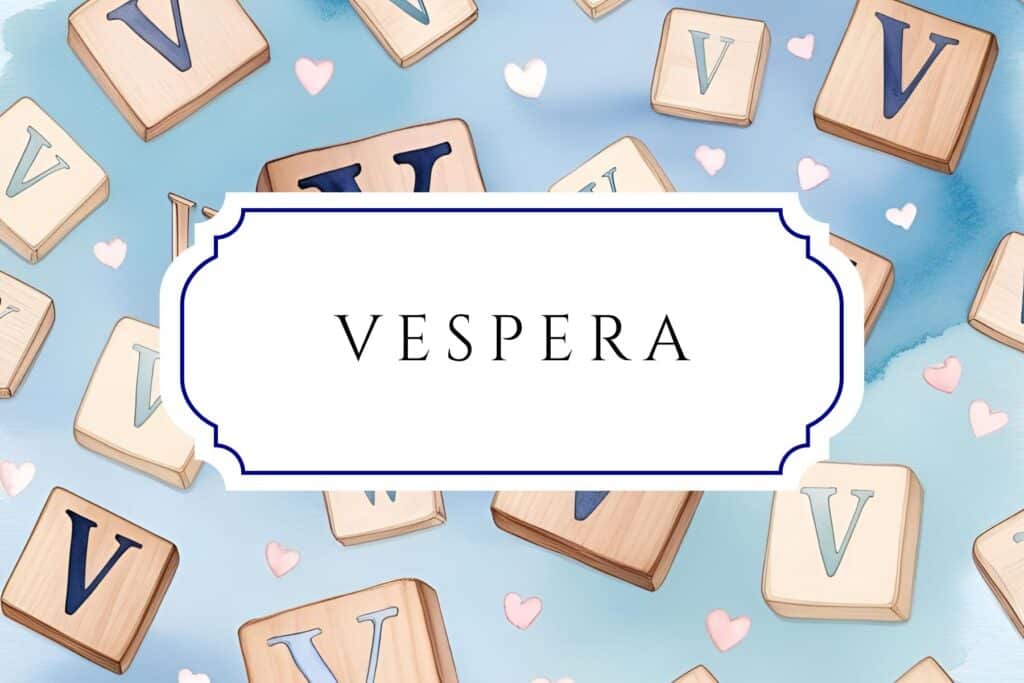
Origin: Latin
Meaning: Evening; Evening Star
Vespera, pronounced ves-PEHR-uh, comes from the Latin word vesper and Esperanto word vespero, meaning "evening" or "evening star." In Roman mythology, Vesper was the personification of the evening star.
Vale

Origin: Latin
Meaning: Valley; Farewell
Vale, pronounced VAYL, derives from the Latin words vallem and vallis, meaning "valley” or “tract of river-land between two ranges of hills or high land. It can also connect to the Latin farewell "vale" (pronounced VAH-lay).
Varvara

Origin: Slavic; Greek
Meaning: Foreign; Stranger
Varvara, pronounced var-VAR-uh, is the Slavic form of Barbara, which is ultimately derived from the Greek word barbaros, meaning "foreign" or "strange." It’s most common in Russia, Greece, Bulgaria and Macedonia.
Venetia
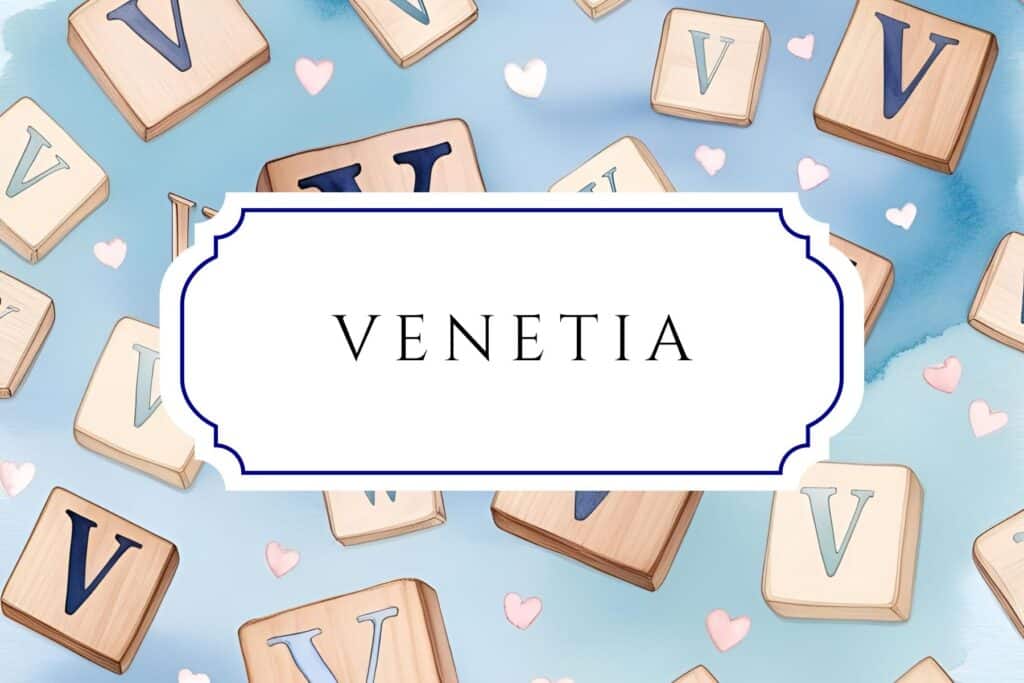
Origin: Latin
Meaning: From Venice; City in Italy
Venetia, pronounced vuh-NEE-shuh, is the Latin name for the region of Venice in Italy. As a personal name, it has historical connections to the ancient Veneti people while offering a more ornate and classical alternative to Venice.
Velma

Origin: Germanic
Meaning: Determined protector; Helmet of resolution
Velma, pronounced VEL-muh, likely derives from the Germanic name Wilma, a feminine form of Wilhelm and variant of William, meaning "determined protector" or "helmet of resolution." It was popularized by Velma Dinkley, one of the main characters in the “Scooby-Doo” franchise.
Viera

Origin: Slavic; Russian
Meaning: Faith; Truth; Summer
Viera, pronounced vee-AIR-uh, comes from Slavic languages, particularly Slovak, meaning "faith” and is closely related to the Russian name Vera. It can also be derived from the Latin word verus, meaning “true,” or Albanian word verë, meaning “summer.”
Viridian
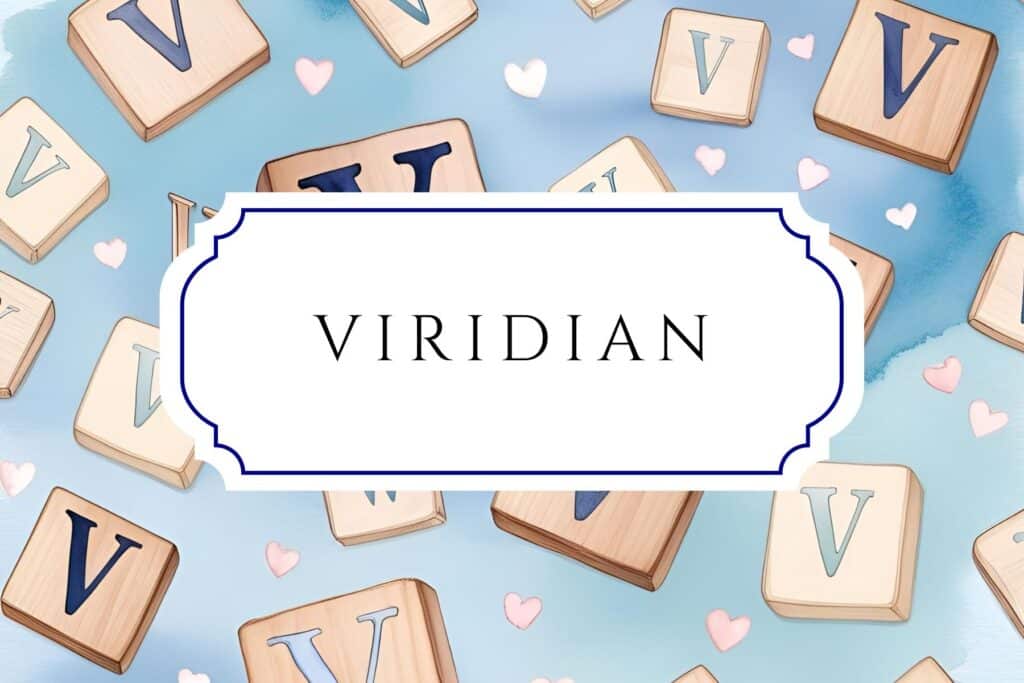
Origin: Latin
Meaning: Green; Blue-green pigment
Viridian, pronounced vuh-RID-ee-uhn, comes from the Latin word viridis, meaning "green." Originally the name of a blue-green pigment, it has emerged as a modern color name with nature associations.
Velora

Origin: Latin
Meaning: Vigilant; Strong; Courageous
Velora, pronounced vuh-LOR-uh, is likely a variant of the names Valerie, which comes from the Latin word valere, meaning “to be strong,” or Valoris, which comes from the Latin words valor and valorem, meaning "strength" or "courage."
Viola
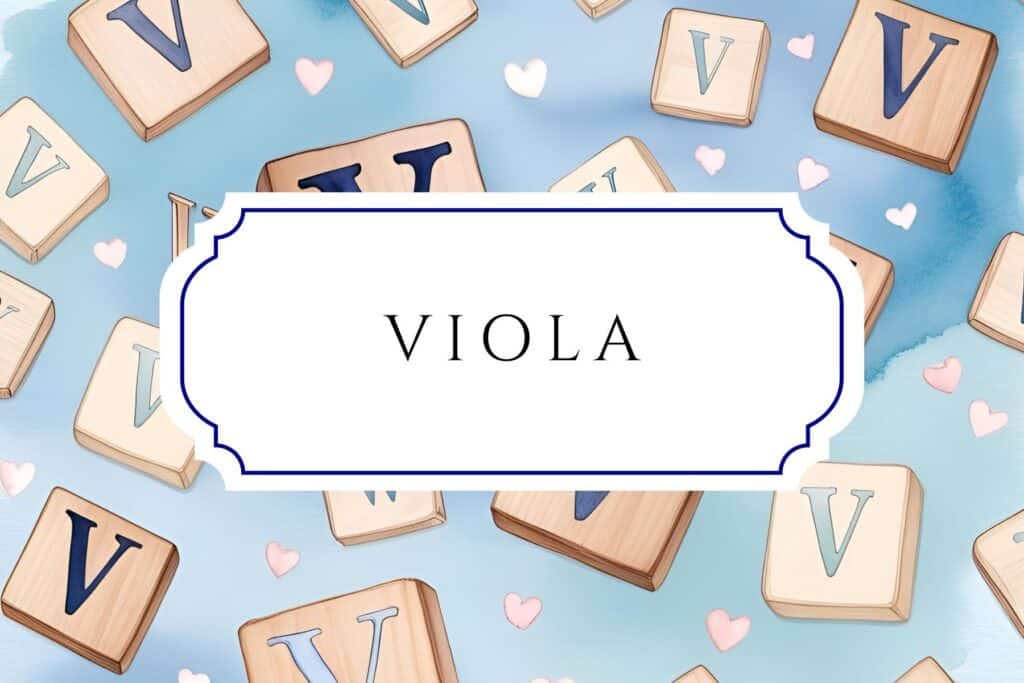
Origin: Latin
Meaning: Violet flower; Musical instrument
Viola, pronounced vee-OH-luh or VY-uh-luh, derives from the Latin word for the violet flower. It's also the name of a musical instrument in the violin family, giving it both musical and natural connotations.
Vilda

Origin: Germanic; Scandinavian
Meaning: Wild; Untamed; Natural
Vilda, pronounced VIL-duh, comes from Germanic and Scandinavian languages, derived from the Swedish word for wild, meaning "untamed" or "natural." It can also be a shortened form of Alvilda, a Danish name meaning “elf warrior.”
Vadodara

Origin: Sanskrit; Indian
Meaning: In the midst of banyan trees
Vadodara, pronounced vuh-doh-DAR-uh, takes its name from the Indian city formerly known as Baroda — located in the state of Gujarat. The name derives from Sanskrit and refers to a place "in the midst of banyan trees."
Verona

Origin: Latin; Italian
Meaning: From Verona; City in Italy
Verona, pronounced vuh-ROH-nuh, is named after the ancient Italian city located on the River Adige in Veneto, Italy. It’s one of Italy’s most-visited cities and is the setting of William Shakespeare’s famous play "Romeo and Juliet.”
Visalia

Origin: English; Place name
Meaning: City in California; Town in Kentucky
Visalia, pronounced vai-SAY-lee-uh, comes from the Californian city of the same name, which was founded by Nathaniel Vise. He chose the name in honor of Visalia, Kentucky, where his family was from.
Valinda

Origin: Latin; Spanish
Meaning: Strong; Brave; Beautiful; CDP in Los Angeles
Valinda, pronounced vuh-LIN-duh, likely combines the Latin root valere, meaning "to be strong" with the Spanish suffix -linda meaning "beautiful." It’s also a census-designated place (CDP) in the San Gabriel Valley of Los Angeles.
Not Interested In Baby Girl Names With V?

Didn't find what you were looking for with the V girl names above? That's okay, the baby name universe extends far beyond this vibrant letter!
The perfect name should connect with your family traditions, personal values, and unique style—regardless of which letter begins it.
What's important is that you stay open-minded and continue your search until you find the one that fits your baby the best.
So, enjoy exploring the full alphabet as you continue your naming journey with Mod Moms Club. And if you need some extra inspiration, give our baby name generator a try!












